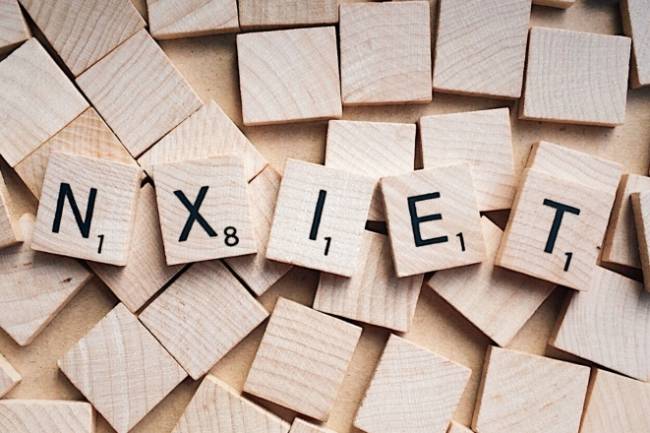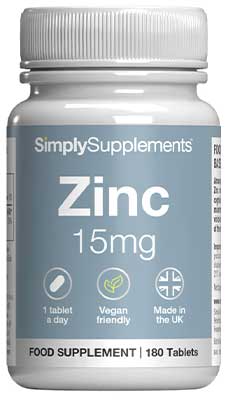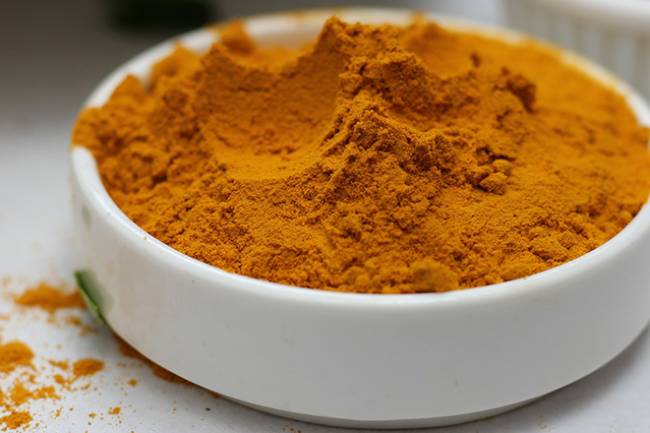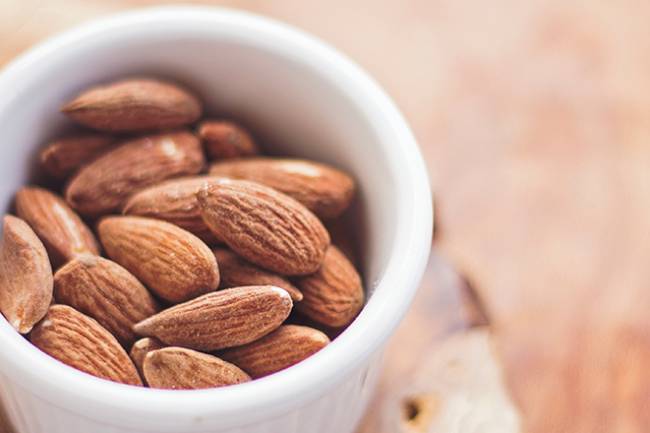Zinc for Anxiety: Could A Zinc Deficiency Be Making You Anxious?

Have you found yourself suffering from increasing anxiety recently? Do you find your heart pumping and your pulse racing? Have you found yourself unable to fall asleep or are you struggling to motivate yourself? If so, the answer might be simpler than you realized...
Anxiety Can Control Your Life
To many non-sufferers it can be tempting to see “anxiety” as something very minor. After all, don't all of us get anxious from time-to-time? Isn't it normal to worry about an upcoming exam or a bill that you know you can't pay?
In reality, of course, anxiety exists on quite a broad scale and can have a considerable impact on many of us. For some it is a nasty feeling in the pit of our stomach, causing us to lie awake at night. For others, anxiety can be a truly debilitating condition, preventing us from living the “normal” life we desire.
There's more. Anxiety is often considered to be an integral part of what doctors call the “depressive syndrome”. Many tools used to assess the severity of depression feature questions on feelings of anxiety. Just because you're carrying on with a job, or looking after your children, or cleaning your house, doesn't necessarily mean that you're not suffering from anxiety.
But what can we do?
What is Zinc?
Zinc is quite a rare element - but it's one that many of us know quite well by name. One scientific study claimed that zinc makes up just 0.02% of the earth's crust, and is actually a lot rarer than many other elements that you probably haven't heard of. For example could you explain what zirconium and vanadium do, despite both of them being more common than zinc?
All the same, the plethora of health benefits offered by zinc means that it is quite well known. Zinc has been found, for example, to play a crucial role in the immune system. Studies have shown that sucking on a zinc lozenge can be far more effective than gulping down orange juice when it comes to preventing colds.
Of particular relevance in this article, however, is how zinc operates in your brain and nerves. Our neurons can vary significantly in length, and typically a single message (such as the pain you feel when touching something hot) travels through a number of nerves on its journey.
The key to these long-distance messages are the synapses - the areas where two nerves join. Here, substances known as neurotransmitters travel across the gap, ensuring that the message passes from one nerve to the next until it reaches its ultimate goal. Scientific investigations have noted that zinc in essence regulates the release of these neurotransmitters. In cases of zinc deficiency, therefore, chemical messages may not pass around your body so smoothly, which it is thought can impact symptoms of depression - including anxiety.
To further support this concept one group of scientists have reported that “alterations in brain zinc status have been implicated in a wide array of neurological disorders including impaired brain development, neurodegenerative disorders such as Alzheimer's disease, and mood disorders including depression. Zinc has also been implicated in neuronal damage associated with traumatic brain injury, stroke, and seizure.”
The Science of Zinc for Anxiety
 So far we've gained a basic understanding of what zinc is, and what it seems to do in the body. But let's not assume anything as fact just yet. Instead, let's delve into some recent scientific research which helps to explain the effects of zinc on anxiety and other depressive symptoms.
So far we've gained a basic understanding of what zinc is, and what it seems to do in the body. But let's not assume anything as fact just yet. Instead, let's delve into some recent scientific research which helps to explain the effects of zinc on anxiety and other depressive symptoms.
One of the most extensive studies took place in Australia. The so-called “Australian Longitudinal Study on Women's Health” encouraged 58,000 women to submit all manner of health-related information. The results of this study, after completion, were then analyzed to identify trends, patterns and relationships.
Fortunately, the data collected included both a dietary questionnaire and a survey designed to assess levels of depression in the participants. The results demonstrated a very clear pattern, in that the less zinc consumed in the diet the greater the likelihood of suffering from depressive symptoms like anxiety. Furthermore, the differences between the top and bottom segments of the population were startling; individuals consuming the most zinc were 30-50% less likely to suffer from depression than those consuming the least.
This trend has been further verified in other studies. For example, one investigation recruited both individuals that had been diagnosed with clinical depression and those that were deemed to be perfectly healthy. Blood samples were drawn, and the results from both groups were compared. It was found that lower zinc levels certainly appeared to be associated with symptoms of depression, however the impact was far greater among women.
This trend line was even stronger when comparing women using antidepressant medications at the time of the study. The experts in question concluded that “inadequate dietary zinc intake contributes to depressive symptoms in women” and furthermore that “zinc is a beneficial adjunct to antidepressant therapy in women”. Another similar study found that, on average, zinc levels in the blood tend to be 22% lower among individuals suffering from anxiety.
Does Adding More Zinc Help Anxiety?
 The scientific research up to this point is quite clear - depressive symptoms like anxiety tend to be closely correlated with low levels of zinc in the body. However, correlation does not necessarily prove causation.
The scientific research up to this point is quite clear - depressive symptoms like anxiety tend to be closely correlated with low levels of zinc in the body. However, correlation does not necessarily prove causation.
The next question is therefore whether raising these levels of zinc through diet or supplementation actually seems to benefit anxious feelings?
In one study the zinc levels of individuals suffering from anorexia were monitored. Unsurprisingly, these levels were found to be considerable below the recommended level. The question was whether these levels had fallen to their recorded levels due to a lack of dietary intake, or whether these low levels of zinc themselves were having an impact on cases of anorexia nervosa.
To test this concept the participants were provided with either 50mg of zinc per day or an identical-looking placebo, to see what impact the rising zinc concentration had on their condition. It was found that the group receiving zinc supplementation experienced considerable improvements in feelings of depression and anxiety when compared with the placebo group.
Another study supplemented patients previously defined as having “major depression” with 25mg of zinc sulphate per day to take alongside their already-prescribed antidepressants. Despite their existing medication routine, it was found that after 12 weeks their depression showed signs of improvement.
The results of this study not only reinforce the benefits of zinc for anxiety but also demonstrate that even people already taking medication may benefit yet further from zinc supplementation.
Lastly zinc has been shown to benefit cases of chronic mild stress, in which consuming just 10mg of zinc per kilogram of bodyweight exhibited a “rapid antidepressant-like effect” in as little as a week. It is little wonder, then, that one group of scientists studying the effect of zinc on anxiety concluded that “not only has zinc deficiency been shown to induce depression-like and anxiety-like behaviors, supplementation has been used as a treatment for major depression”.
Anxiety & Medical Help
Anxiety can be a serious condition, and may require a multi-faceted approach to treatment. While the evidence to date strongly suggests that increasing your zinc intake may help, any condition linked to depression should be referred immediately to a medical professional.
Your doctor may suggest a range of treatments including a course of antidepressants or counselling. At the very worst you can at least discuss their opinions on supplementing your diet with extra zinc. Getting proper help when suffering with health issues is important at the best of times, but particularly so under these circumstances.
How Much Zinc Should You Take for Anxiety?
The scientific research to date has used a range of different strengths of zinc, and the effect is likely to be based on how severely deficient you are. At present, it is recommended that we all consume 10mg of zinc per day, though therapeutic doses may be rather higher.
Based on the above studies it would seem to make sense to start with a lower dose of some 10mg initially, to see if you notice any effect. If not, this can always be increased over time to achieve the desired result in conjunction with your doctor.
How to Increase Your Zinc Intake
 There are two simple and effective ways to increase your zinc levels. Firstly, of course, there are a range of reasonably-priced zinc supplements such as our 15mg tablets. Simply take one tablet per day with a glass of water for the easiest solution available. For a more holistic approach consider eating more zinc-rich foods. Great examples of foods high in zinc include:
There are two simple and effective ways to increase your zinc levels. Firstly, of course, there are a range of reasonably-priced zinc supplements such as our 15mg tablets. Simply take one tablet per day with a glass of water for the easiest solution available. For a more holistic approach consider eating more zinc-rich foods. Great examples of foods high in zinc include:
- Seafood - Oysters are thought to be the “king” of foods when it comes to zinc. Fortunately, a number of rather more appealing ingredients include lobster, crab, flounder or sole.
- Meat - Lamb, beef, pork and chicken are great sources of zinc.
- Dairy - Milk, cheese and yogurt are great high-zinc options.
- Seeds and Nuts - Cashews, pumpkin seeds and almonds are among the best options.
- Fortified Foods - Don't forget about the wide range of standard supermarket foods that are increasingly being fortified with added zinc. Many breakfast cereals, for example, now have impressive amounts of zinc added during the manufacturing process.
Conclusion
In conclusion, the wealth of evidence suggests that zinc and anxiety really are intricately linked. It is perhaps best to conclude with the results from one more scientific study on the matter: “Not only has zinc deficiency been shown to induce depression-like and anxiety-like behaviors, supplementation has been used as a treatment for major depression. Zinc administration improves the efficacy of antidepressant drugs in depressed patients and may have a particular role to play in treatment-resistant patients.”
Sources:
http://www.jahonline.org/article/0197-0070(87)90227-0/fulltext
http://journals.sagepub.com/doi/abs/10.4137/NMI.S6349
http://www.jad-journal.com/article/S0165-0327(11)00353-3/abstract
https://link.springer.com/article/10.1007/s12011-011-9202-y
https://iubmb.onlinelibrary.wiley.com/doi/full/10.1002/biof.1012
https://journals.lww.com/co-clinicalnutrition/Abstract/2010/11000/Role_of_zinc_in_the_development_and_treatment_of.14.aspx
http://europepmc.org/abstract/med/9662732
http://www.jad-journal.com/article/S0165-0327(10)00360-5/abstract
https://link.springer.com/article/10.1007/s00702-008-0115-7
https://www.tandfonline.com/doi/abs/10.1179/1476830513Y.0000000066
http://www.jad-journal.com/article/S0165-0327(14)00304-8/abstract
https://link.springer.com/chapter/10.1007/978-1-4471-3879-2_1
https://link.springer.com/article/10.1007/s12011-009-8572-x
http://www.jad-journal.com/article/S0165-0327(11)00565-9/abstract

 Nicole
Nicole 

























